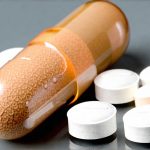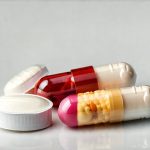Bladder infections, often called cystitis, can be incredibly disruptive to daily life. The burning sensation during urination, frequent urges to go, and general discomfort are enough to make anyone seek relief quickly. While antibiotics prescribed by a healthcare professional are the primary treatment for bacterial bladder infections, what you eat and drink during and after an infection can significantly impact your recovery and help prevent future occurrences. It’s about supporting your body’s natural healing processes and minimizing irritation within the urinary tract. This isn’t about finding a ‘cure’ through diet, but rather optimizing your nutritional intake to complement medical treatment and promote overall wellness during a challenging time.
Many people understandably focus on symptom relief when dealing with a bladder infection. However, considering post-infection dietary habits is crucial for long-term urinary health. A weakened immune system or ongoing irritation can leave you vulnerable to recurrent infections. Focusing on foods that bolster immunity, reduce inflammation, and support the urinary tract’s natural defenses can make a substantial difference in preventing future flare-ups. This article will explore what nutritional strategies are beneficial – and which ones might be best avoided – as you navigate recovery from a bladder infection. Remember, this information is for general knowledge and shouldn’t replace advice from your doctor or other qualified healthcare provider.
Hydration: The Cornerstone of Recovery
Water is undeniably the most important element in recovering from and preventing bladder infections. Adequate hydration helps flush bacteria out of the urinary tract, diluting urine and reducing irritation. Aim for a consistent intake throughout the day rather than chugging large amounts at once; this provides a more continuous cleansing effect. A general guideline is to drink 6-8 glasses (approximately 1.5-2 liters) of water daily, but individual needs vary based on activity level, climate, and overall health. Paying attention to your body’s signals – thirst being the primary one – is key.
Beyond plain water, certain herbal teas can also contribute to hydration and offer additional benefits. Dandelion tea acts as a gentle diuretic, promoting urine flow without excessive strain on the kidneys. However, individuals with kidney problems should consult their physician before consuming dandelion tea. Other options include chamomile tea (known for its calming properties) and ginger tea (which has anti-inflammatory effects). Avoid sugary drinks, caffeinated beverages, and alcohol, as these can irritate the bladder and potentially worsen symptoms or interfere with antibiotic effectiveness.
Crucially, maintaining adequate hydration isn’t just during the acute infection phase; it should become a consistent habit after recovery to prevent future issues. Consider carrying a reusable water bottle as a visual reminder throughout the day. Tracking your intake can also be helpful – there are numerous apps available for this purpose. Think of hydration as an ongoing investment in your urinary health, not just a temporary fix during illness.
Foods to Embrace During and After Infection
Focusing on foods that support the immune system and reduce inflammation is vital for recovery. Vitamin C-rich fruits and vegetables like oranges, grapefruit, strawberries, bell peppers, and broccoli are excellent choices. Vitamin C strengthens the immune system and increases urine acidity, which can inhibit bacterial growth. Similarly, incorporating foods containing antioxidants, such as blueberries, raspberries, and cranberries (unsweetened), can help protect cells from damage and boost overall health.
Probiotic-rich foods like yogurt (with live cultures) and kefir can also be beneficial. Probiotics promote a healthy gut microbiome, which plays a crucial role in immune function. A strong gut microbiome helps the body fight off infections more effectively. Fermented vegetables, such as sauerkraut and kimchi, are another excellent source of probiotics. However, if you’ve been prescribed antibiotics, it’s particularly important to replenish your gut bacteria with probiotic-rich foods or supplements after completing the course, as antibiotics can disrupt the natural balance of microorganisms in your digestive system. You can learn more about supporting your body what to eat and drink during a UTI.
Don’t underestimate the power of simple, whole foods. Lean proteins (chicken, fish, beans) provide essential amino acids for tissue repair and immune function. Complex carbohydrates (whole grains, sweet potatoes) offer sustained energy without causing spikes in blood sugar. And healthy fats (avocado, olive oil, nuts) support cell health and reduce inflammation. A balanced diet provides the building blocks your body needs to heal and thrive.
Foods to Limit or Avoid During Recovery
Certain foods can exacerbate bladder irritation and potentially worsen symptoms during recovery from a bladder infection. The most common culprits are those that increase acidity in urine or irritate the bladder lining. Citrus fruits (lemons, limes) and tomato-based products should be consumed in moderation or avoided altogether, as they can cause discomfort for some individuals. Similarly, spicy foods, chocolate, alcohol, and caffeine are known bladder irritants and may worsen symptoms.
Artificial sweeteners also deserve attention. While seemingly harmless, artificial sweeteners can sometimes contribute to inflammation and disrupt gut health, potentially impacting immune function. It’s best to opt for natural sweeteners in moderation or reduce overall sugar intake. Pay close attention to how your body reacts to different foods. What irritates one person may not bother another. It’s important to know what to avoid during a bladder infection as well.
Furthermore, processed foods, high in salt and unhealthy fats, offer little nutritional value and can contribute to inflammation. Focusing on whole, unprocessed foods provides the nutrients your body needs without exacerbating symptoms or hindering recovery. Reading food labels carefully and making informed choices are essential for managing dietary intake during this time.
Boosting Urinary Tract Health Long-Term
Beyond diet, there are several lifestyle factors that contribute to long-term urinary tract health and can help prevent recurrent infections. Practicing good hygiene is paramount – wiping from front to back after using the restroom helps prevent bacteria from entering the urethra. Urinating immediately after sexual activity also helps flush out any potential bacteria.
Wearing breathable cotton underwear allows for better airflow, reducing moisture that encourages bacterial growth. Avoiding tight-fitting clothing can also help promote ventilation. Regular exercise and stress management are crucial for a healthy immune system. Chronic stress weakens the immune system, making you more vulnerable to infection. Incorporating stress-reducing activities like yoga, meditation, or spending time in nature can significantly boost your overall health.
Finally, listen to your body and address any unusual symptoms promptly. Don’t hesitate to seek medical attention if you suspect a urinary tract infection. Early diagnosis and treatment are key to preventing complications. Remember that dietary changes should be viewed as a complement to medical care, not a replacement for it. A holistic approach – combining proper medical treatment with healthy lifestyle choices – is the most effective way to maintain long-term urinary health and wellbeing. If you’ve recently passed a stone, consider what not to eat the week after passing a stone for dietary guidance.





















